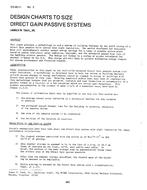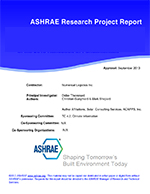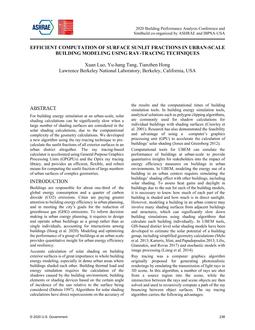The annual energy use of fixed- and variable-airflow series fan-powered terminal units (FPTUs) in a small office building was evaluated and compared using the hourly weather data from five cities: Houston, TX; Phoenix, AZ; San Francisco, CA; New York, NY; and Chicago, IL. Annual energy use was estimated by implementing a previously developed (O’Neal et al. 2016) mass and energy balance model in Engineering Equation Solver (EES 2016). A fixed-airflow series FPTU with a permanent split capacitor motor controlled by a silicon-controlled rectifier was assumed to be the baseline. Other fixed-airflow FPTUs included three with electronically commutated motors with capacity factors of 0%, 25%, and 50%. The capacity factor, as defined in this paper, is a measure of how large the maximum airflow of the FPTU is compared to the design airflow of the zone. The variable-airflow FPTUs also used electronically commutated motors with three capacity factors relative to the design load (0%, 25%, and 50%). The results demonstrated the energy savings potential of electronically commutated motors whether applied in fixed- or variable- airflow applications. Because FPTUs are applied in a wide range of building types and sizes, the savings for a small office building may differ from the savings estimates for a larger building or for a building designed for a different purpose (healthcare, retail, etc.), where the internal loads may be different from those of the small office building modeled in this paper.
Citation: NULL
Product Details
- Published:
- 2018
- Number of Pages:
- 16
- Units of Measure:
- Dual
- File Size:
- 1 file , 1.7 MB
- Product Code(s):
- D-CH-18-012


